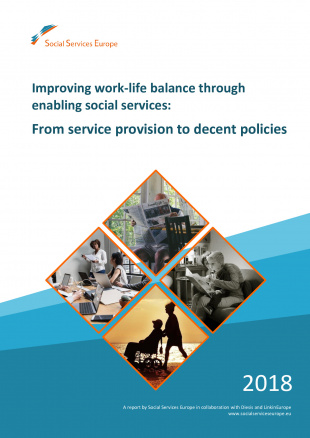Improving work-life balance through enabling social services
See the policy recommendations
Social Services Europe, a coalition of not-for-profit social and healthcare providers at EU level, including the Red Cross EU Office, has developed new research on "Improving work-life balance through enabling social services".
Principle 9 of the European Pillar of Social Rights states that “parents and people with caring responsibilities have the right to suitable leave, flexible working arrangements and access to care services. Women and men shall have equal access to special leaves of absence in order to fulfil their caring responsibilities and be encouraged to use them in a balanced way”. In this regard, social service providers have a key role in ensuring parents and people can conciliate their professional life with their caring responsibilities.

Through a series of case studies, the research looks at the crucial role of social services in improving the work-life balance in Europe.
Based on an analysis of the factors which enable the development of such services and their impact, Social Service Europe provides recommendations to policy-makers to improve work-life balance through better access and quality to care services.
About Social Services Europe
Social Services Europe is the largest network of not-for-profit social and healthcare providers at EU level, representing over 100,000 organisations through its 8 members: Caritas Europa, Eurodiaconia, the Red Cross EU Office, the European Association of Service providers for Persons with Disabilities (EASPD), the European Platform for Rehabilitation (EPR), the European Federation of National Organisations Working with the Homeless (FEANTSA), SOLIDAR and the European Council for Non-Profit Organisations (CEDAG).

Social Services Europe member organisations provide services to people with disabilities, homeless people, migrants, children, the elderly, and others in vulnerable situations. Social Services Europe aims to strengthen the profile and position of social services and promote the role of not-for-profit service providers in Europe.
Theme


